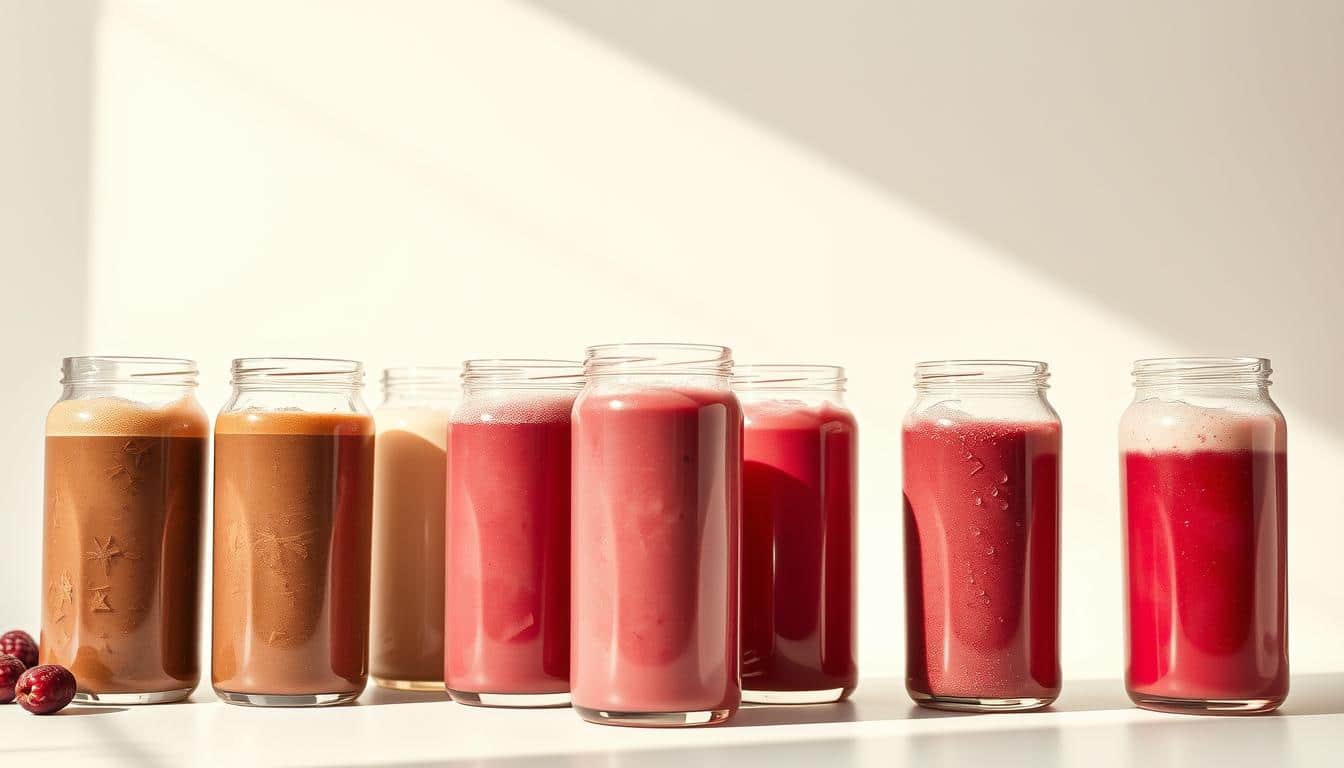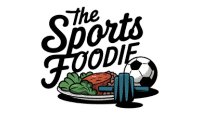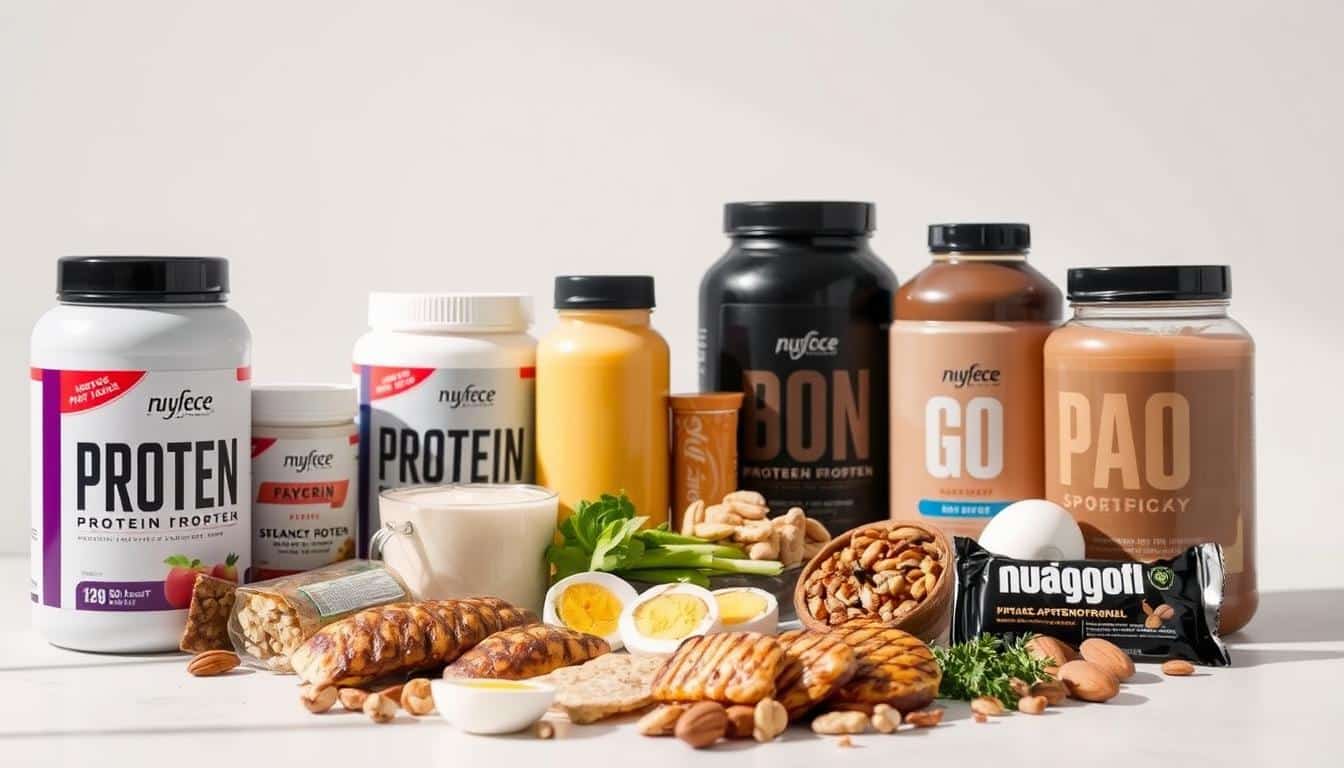Did you know that elite athletes require up to 2.2 grams of protein per kilogram of body weight daily to maintain peak performance? For football players, this isn’t just a number—it’s a necessity. Proper nutrition fuels strength, recovery, and endurance, making it a game-changer on and off the field.
When it comes to supplements, not all products are created equal. Certifications like NSF Certified for Sport ensure that what you’re consuming is safe, effective, and free from banned substances. This guide dives into the top options, breaking down ingredients, flavors, and nutritional benefits to help you make informed choices.
Whether you’re looking to build lean muscle, boost energy, or enhance recovery, we’ve got you covered. From whey protein to plant-based blends, we’ll explore products that meet the demands of high-performance athletes. Let’s get started!
Introduction
Proper fueling is essential for peak athletic performance. Whether you’re training for a game or recovering from one, your body needs the right nutrients to stay strong and energized. That’s where protein shakes come in—they’re a convenient and effective way to meet your nutritional needs.

What Protein Shakes Offer Athletes
Protein shakes are more than just a quick meal replacement. They’re packed with essential nutrients that help build and repair muscle. For athletes, this means faster recovery and better performance on the field. Ingredients like whey and casein are especially popular because they provide a complete amino acid profile.
These shakes are also a great source of energy. Whether you’re gearing up for a workout or winding down after one, they deliver the fuel your body needs. Plus, they’re easy to customize with your favorite flavors and add-ins.
Why NFL Players Rely on Protein Supplements
For football players, protein supplements are a game-changer. The physical demands of the sport require a high intake of nutrients to maintain strength and endurance. Certified products, like those with NSF Certified for Sport labels, ensure that athletes are getting safe and effective options.
These supplements are designed to support muscle recovery and energy replenishment. They’re also free from banned additives, making them a trusted choice for professional athletes. Here’s a quick look at some top-rated options:
| Product | Protein per Serving | Calories | Certification |
|---|---|---|---|
| Momentous Grass Fed Whey | 20g | 100 | NSF Certified |
| Optimum Nutrition Gold Standard | 24g | 120 | Informed Sport |
| Klean Athlete Whey Isolate | 20g | 85 | NSF Certified |
Choosing the right supplement can make a big difference in your training and recovery. Look for products with high-quality ingredients and third-party certifications to ensure you’re getting the best for your body.
The Role of Protein in Football Performance
Football demands more than just skill—it requires the right fuel to power through every play. Whether you’re sprinting down the field or recovering from a tough workout, protein plays a key role in keeping you at your best. It’s not just about building muscle; it’s about sustaining energy and speeding up recovery.

Building Muscle and Energy
On the field, every move counts. Protein helps repair and grow muscle tissue, which is essential for strength and endurance. Ingredients like whey and casein provide a complete amino acid profile, making them a top choice for athletes. These nutrients also fuel your body, giving you the energy to push through intense training sessions.
For football players, the right blend of protein can make a big difference. Products with added leucine, an amino acid, are especially effective. Leucine helps trigger muscle protein synthesis, which is crucial for building and maintaining lean muscle mass.
Recovery and Quick Absorption
Recovery is just as important as training. After a hard workout, your muscles need nutrients to repair and rebuild. Whey protein is known for its fast absorption, making it ideal for post-workout recovery. It delivers amino acids to your muscles quickly, reducing soreness and speeding up the healing process.
Some protein powders also include digestive enzymes to enhance absorption and reduce discomfort. This means you can recover faster and get back to training sooner. Timing matters too—consuming protein within 30 minutes of a workout maximizes its benefits.
For football players, efficient recovery is a game-changer. The right protein supplement can help you stay strong, energized, and ready for the next play.
Best Protein Shakes for NFL Players
When it comes to fueling your body for peak performance, not all options are created equal. For athletes, especially football players, the right choice can make a significant impact on strength, recovery, and overall performance. Let’s break down what to look for in a high-quality product.
Certification and Ingredient Quality
Third-party certifications like NSF Certified for Sport and Informed Sport are crucial. They ensure that what’s on the label matches what’s in the product. This is especially important for athletes who need to avoid banned substances.
For example, Klean Athlete Isolate is NSF Certified, guaranteeing its purity and safety. Similarly, Garden of Life Sport offers a plant-based blend that’s both certified and packed with essential nutrients. Always check for certifications to ensure you’re getting a safe and effective product.
Taste, Texture, and Price Benefits
Taste and texture matter more than you might think. A product that mixes well and tastes great is more likely to become a regular part of your routine. For instance, BiPro ELITE is known for its smooth texture and rich flavor, making it a favorite among athletes.
Price per serving is another key factor. While some options like Optimum Nutrition Gold Standard are budget-friendly, others like Jocko Mölk offer premium quality at a higher cost. Here’s a quick comparison to help you decide:
| Product | Certification | Protein per Serving | Price per Serving |
|---|---|---|---|
| Garden of Life Sport | NSF Certified | 20g | $2.50 |
| Klean Athlete Isolate | NSF Certified | 20g | $3.00 |
| BiPro ELITE | Informed Sport | 25g | $3.50 |
Choosing the right product involves balancing quality, taste, and cost. Look for certifications, check ingredient lists, and consider how the product fits into your daily routine. With the right choice, you’ll fuel your body effectively and efficiently.
Comparing Whey Protein and Collagen Protein
Understanding the differences between whey and collagen can help you make smarter nutrition choices. Both are popular among athletes, but they serve distinct purposes. Let’s break down their nutritional profiles and how they impact performance.
Key Nutritional Differences
Whey is a complete protein, meaning it contains all nine essential amino acids. It’s known for its ability to build and repair muscle quickly. This makes it a go-to for athletes looking to increase muscle mass and strength.
On the other hand, collagen is rich in specific amino acids like glycine and proline. These support joint, tendon, and ligament health. While it doesn’t provide all essential amino acids, it’s excellent for improving flexibility and reducing injury risk.
Impact on Recovery and Athletic Power
Whey is absorbed rapidly, making it ideal for post-workout recovery. It delivers amino acids to your muscles quickly, reducing soreness and speeding up repair. This is why many athletes use it after intense training sessions.
Collagen, however, shines in supporting joint health and recovery. Studies show it can improve flexibility and reduce joint pain, especially when taken 30-60 minutes before exercise. It’s a great option for athletes who need to protect their joints during high-impact activities.
Here’s a quick guide on when to use each:
- Whey: Best for building muscle and post-workout recovery.
- Collagen: Ideal for joint health and pre-workout support.
By understanding these differences, you can tailor your nutrition to meet your specific needs. Whether you’re aiming for strength or flexibility, both proteins have a place in your routine.
How to Choose a Protein Supplement
Choosing the right supplement starts with understanding what’s on the label. It’s not just about the flashy packaging or bold claims—it’s about the details. A well-informed choice can make all the difference in your training and recovery.
Understanding Nutrition Labels
Nutrition labels are your roadmap to quality. Start by checking the protein per serving. Look for products with at least 20 grams per serving to support muscle repair and growth. The higher the amount, the better it fuels your body.
Next, scan the ingredient list. Ingredients are listed in order of quantity, so the first few items matter most. Avoid products with long lists of additives or fillers. Simple, clean ingredients are a sign of quality.
Here’s what to look for:
- Protein Source: Whey, casein, or plant-based options like pea or hemp.
- Third-Party Certifications: NSF Certified for Sport or Informed Sport ensures safety and purity.
- Sugar Content: Keep it low to avoid unnecessary calories.
Certifications are a big deal. They guarantee that the product is free from banned substances and meets strict quality standards. For athletes, this is non-negotiable.
Finally, compare products based on price per serving and protein per gram. This helps you get the most value for your money. Remember, the cheapest option isn’t always the best—quality matters.
By taking the time to read labels, you’ll make smarter choices that support your goals. Whether you’re building muscle mass or enhancing recovery, the right supplement can elevate your performance.
Protein Shake Tips from NFL Pros
Ever wondered how NFL pros fuel their bodies for peak performance? The Gronkowski brothers, known for their incredible strength and endurance, swear by a few key strategies. Their favorite recipes and timing tips can help you take your game to the next level.
Insight from the Gronkowski Brothers
Rob and Chris Gronkowski have shared some of their go-to recipes that combine great taste with powerful nutrition. One of their favorites is the Chocolate Peanut Butter Shake. It’s packed with whey protein, peanut butter, and a hint of cocoa for a delicious post-workout treat.
Another standout is the Tornado Pre-Workout Shake. This blend includes whey protein, banana, and almond milk for quick energy. The brothers emphasize the importance of consuming it 30 minutes before training to maximize its impact.
For a morning boost, they recommend the Coffee Protein Shake. It combines cold brew coffee, whey protein, and a touch of honey for a flavorful way to start the day. These recipes are simple, effective, and perfect for athletes on the go.
Pre-Workout and Post-Workout Strategies
Timing is everything when it comes to fueling your body. For pre-workout shakes, aim to consume them 30 minutes before training. This gives your body time to absorb the nutrients and convert them into energy.
Post-workout shakes should be consumed within 30 minutes of finishing your session. This is when your muscles are most receptive to nutrients, helping speed up recovery and reduce soreness.
Here’s a quick guide to making the most of your shakes:
- Pre-Workout: Focus on ingredients like bananas, oats, and whey protein for sustained energy.
- Post-Workout: Use whey protein, peanut butter, and almond milk for muscle repair and recovery.
- Natural Sweeteners: Add honey or dates for flavor without the extra sugar.
Using an Ice Shaker makes preparation easy. Just add your ingredients, shake, and you’re ready to go. These tips and recipes from the Gronkowski brothers are a game-changer for any athlete looking to optimize their nutrition.
Protein Supplement Certification for Athletes
Ensuring your supplements are safe and effective is crucial for athletes. With so many options on the market, it’s easy to get overwhelmed. That’s where third-party certifications come in. They provide peace of mind by verifying that what’s on the label matches what’s in the product.
NSF Certified for Sport Standards
NSF Certified for Sport is one of the most trusted certifications in the industry. It ensures that a product is free from banned substances and meets strict quality standards. For athletes, this is non-negotiable. It’s a guarantee that what you’re consuming is safe and effective.
Products like Klean Athlete Whey Isolate and Momentous Grass Fed Whey carry this certification. They’re trusted by professional athletes because they deliver clean, high-quality protein without hidden additives.
The Importance of Third-Party Testing
Third-party testing is essential for supplement safety. It involves independent labs verifying the ingredient list and ensuring no banned substances are present. This process adds an extra layer of trust for athletes who rely on these products for recovery and performance.
Certifications like Informed Sport also play a key role. They test every batch of a product to ensure consistency and safety. Brands like Optimum Nutrition Gold Standard and BiPro ELITE are great examples of products that meet these high standards.
Here’s why certification matters:
- It ensures ingredient accuracy and product purity.
- It helps athletes avoid banned substances that could impact their careers.
- It provides confidence in the quality of what you’re consuming.
Always look for certification symbols on your protein supplements. It’s a simple way to make sure you’re fueling your body with the best.
Integrating Protein Shakes into Training
Fueling your body effectively during training can make or break your performance. Whether you’re gearing up for a workout or recovering from one, timing and quality matter. Let’s explore how to make the most of your shakes to support your goals.
Pre-Workout Timing and Benefits
Consuming a shake about 30 minutes before training can give you a significant edge. It provides your muscles with the energy they need to power through intense sessions. Ingredients like whey are ideal because they’re absorbed quickly, delivering amino acids to your system fast.
Research shows that even 10 grams of protein before a workout can enhance muscle uptake. This helps reduce fatigue and improves endurance. Pairing your shake with a banana or oats can add sustained energy for longer workouts.
Meal Planning with Protein Shakes
Shakes aren’t just for workouts—they can be a key part of your daily nutrition. For example, replacing breakfast with a low-carb, high-protein shake can kickstart your day with essential nutrients. It’s a convenient way to stay on track, especially on busy mornings.
Here’s a simple meal plan to try:
- Breakfast: Shake with whey, almond milk, and spinach.
- Lunch: Grilled chicken with quinoa and veggies.
- Snack: Shake with peanut butter and a banana.
- Dinner: Salmon, sweet potatoes, and a side salad.
Experiment with timing and ingredients to see what works best for your body. Whether you’re building muscle or enhancing recovery, shakes can be a game-changer in your routine.
Conclusion
Choosing the right fuel for your body can elevate your game and recovery. Certified protein products, like those with NSF Certified for Sport labels, ensure safety and quality. These options are trusted by athletes for their clean ingredient lists and effectiveness.
Always check nutrition labels to understand what you’re consuming. Look for products with high-quality whey or plant-based blends that support muscle repair and energy. Timing matters too—experiment with pre- and post-workout shakes to see what works best for your body.
Use this guide as your go-to resource for informed decisions. Whether you’re a football player or a fitness enthusiast, the right nutrition can make all the difference. Start today and fuel your body for peak performance!


